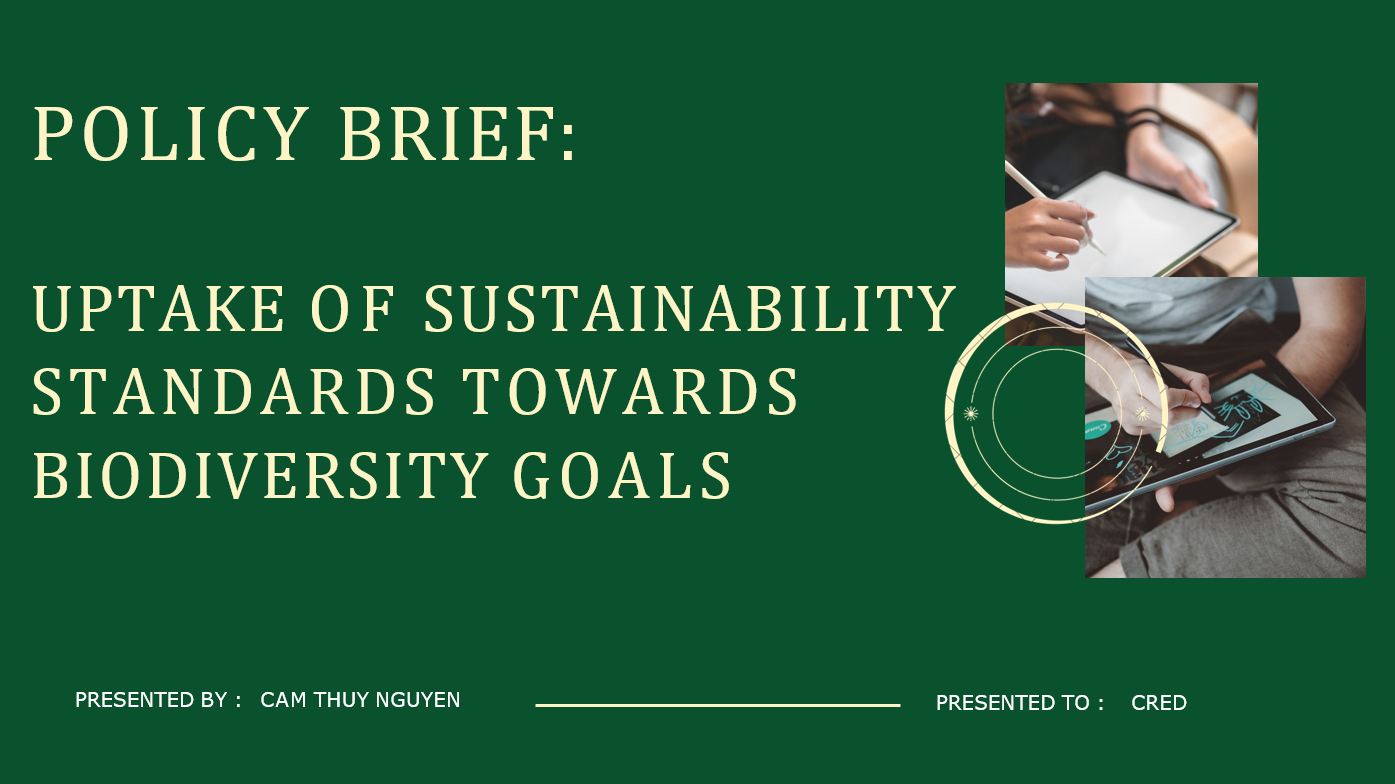- Giới thiệu
- Nhóm Công tác
- Tin tức
- Thông tin về FTA
- Tài Liệu
- Sự kiện
- Liên hệ
Uptake of Sustainability Standards Towards Biodiversity Goals
Uptake of Sustainability Standards Towards Biodiversity Goals
Biodiversity loss constitutes a major global threat, as reported by the World Economic Forum (WEF). Unsustainable trade and consumption of products and services derived from biodiversity represent a contributing factor to this decline of diversity.
The 2030 Agenda for Sustainable Development identifies international trade as a means of achieving inclusive economic growth and reducing poverty. Voluntary Sustainability Standards (VSS) are increasingly being included in trade agreements to promote sustainable development and good governance. VSS are norms and standards used to ensure that products are harvested, produced, processed, or transported in accordance with specific sustainability metrics. These metrics include environmental impact, basic human rights, labour standards, and gender equality. Currently, there are over 500 VSS that apply to key exports of many countries, such as coffee, tea, bananas, cocoa, palm oil, timber, cotton, and organic agri-foods.
To support the scale-up of VSS, and facilitate the transactions of biodiversity-based products and services, the concept of Biotrade was first coined by UNCTAD in 1996. Since then it has been introduced and developed in Vietnam since the 2010s and has become the core transaction of the ecosystem where Vietnamese exporters can develop sustainable supply chains and reach potential markets through efficient trade promotion and value chain services. Up to now, both VSS and Biotrade have proved to be effective tools to encourage governments and companies to adopt practices that align with environmental, social, and economic objectives.

This policy paper (click here) aims to raise awareness of the importance of Voluntary Sustainability Standards (VSS) in supporting the development of sustainable supply chains, facilitating international trade in biodiversity-based products, and promoting the adoption of these standards in Vietnam's agricultural sector.
Tin liên quan
PSAV Attends the 30th Anniversary Celebration of Cargill Vietnam2025/10/23
Plant health management helps increase coffee yield up to 15%2025/10/16
An Giang to host 2025 OCOP forum for sustainable development2025/09/25
Viet Nam and France foster cooperation on blue economy and sustainable environment2025/09/29
Agriculture and Environment exhibition ready for National celebration2025/08/27



 Điều lệ hoạt động
Điều lệ hoạt động



















































